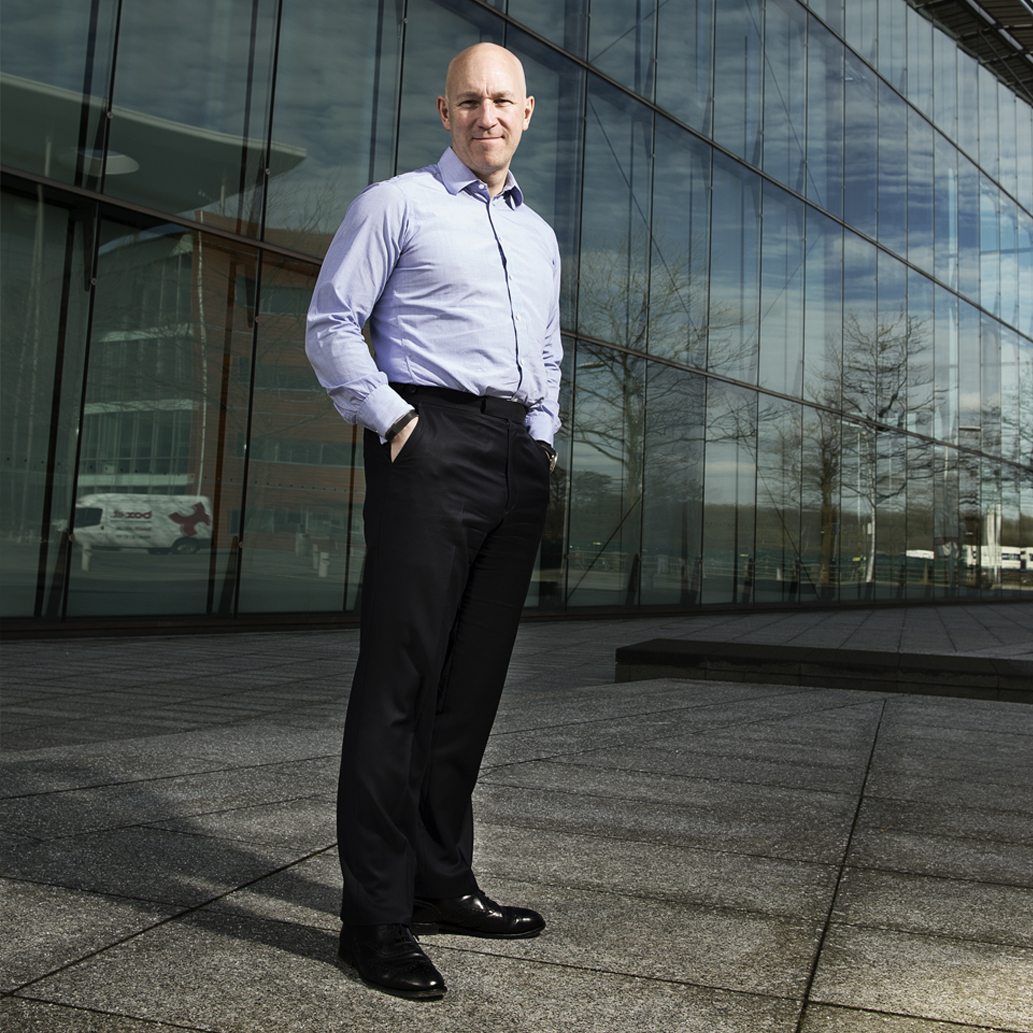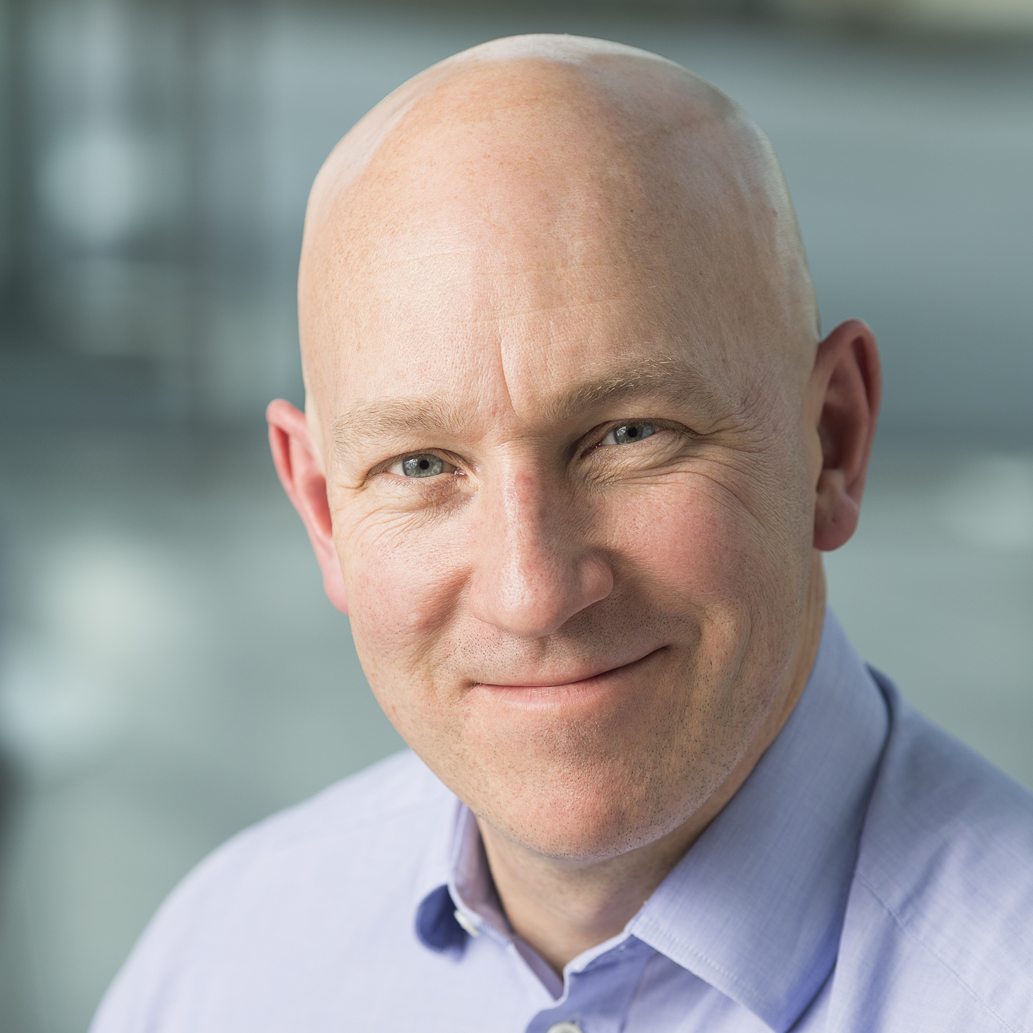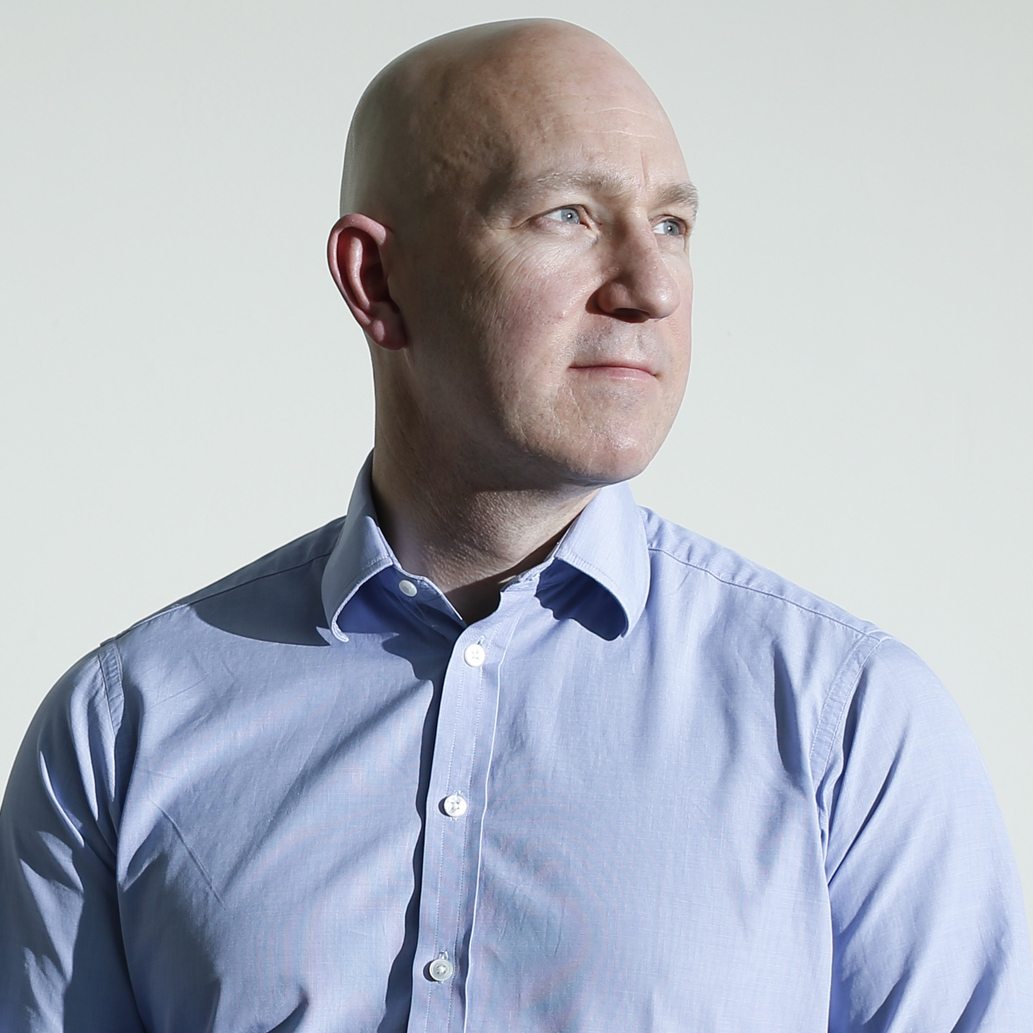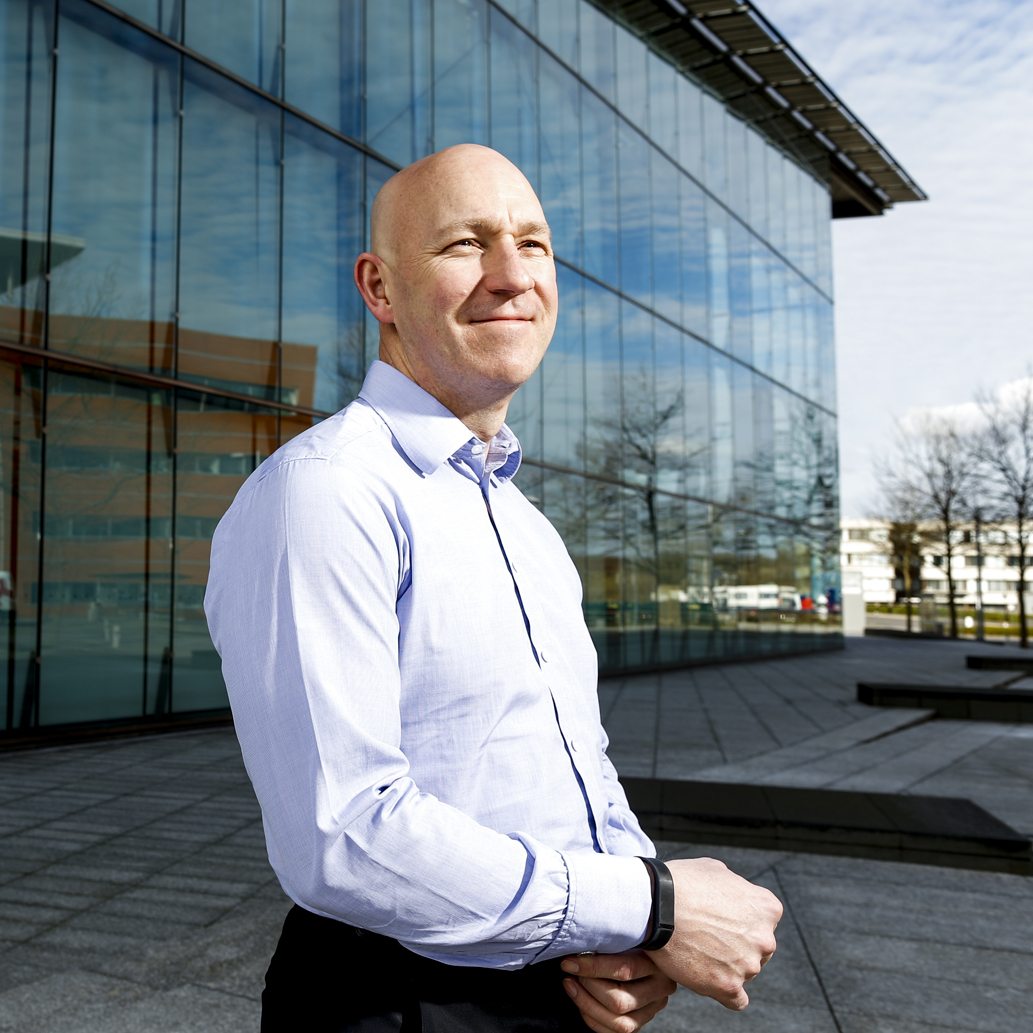Matt, tell us about your early life and why you decided on a career in HR?
Well, HR was not a career choice when I left school. I followed in my dad’s footsteps and did an apprenticeship in tool making. This took me into a job in engineering with BAE Defence Dynamics. Following that I moved into software design, writing databases and programmes for CNC machines, to manufacture components for guided missiles. I had the opportunity to go to the US programming with Phoenix Consulting. Then about six months later, I took an opportunity back at Defence Dynamics in manufacturing systems design, designing and simulating manufacturing cells using lean methodologies. It was then that my line manager suggested I go into HR in order to get some people experience before they promoted me into a leadership role. Considering my original plan was in a career in engineering, what really surprised me was, I absolutely loved it, and HR has captivated me ever since then. From then until now, I’ve experienced all aspects of HR in many roles, from managing people as a line manager in HR operations, and getting embroiled in HR staples such as; training, recruitment and pensions, and I spent a lot of time involved in industrial relations. Working with Trades Unions is something I really enjoy.

What qualities do you think you had that enabled you to make leap from hands on engineering to people management?
It was through my experience in line management that I discovered my capabilities in working with people, and I took a side step into a training function and that was it. I really enjoyed every aspect of this, so the die was cast, career wise. Defence Dynamics is a guided weapon manufacturer, and I didn’t spend a lot of time in the factories, so it wasn’t until I moved into a more generalised role that I started to get involved in, and understanding, industrial relations. Also, I think what really helped me was, I had a working class upbringing, and I was able to understand where people were coming from, and I could empathise with the position of trade unions, and the importance of working with them to bring balance to an organisation. You know, we’re all trying to achieve the same thing, and that’s improvement for people and business performance, the two things are joined right down the middle.

How did you manage the transition into HR per se, in an environment that's notoriously sceptical and unforgiving?
The best way to win people over is to bring value in whatever you’re doing. At this time, one area where HR was not fulfilling was reporting, it was very limited. So I was able to use my skills in software, and I was able to use databases to get better and more informed decisions, so aligned with learning a new set of skills, I was able to bring a whole new level of useful data to improve decision making. My first role was employee development advisor, for the naval division in Defence Dynamics, I was part of a small team of advisors and generalists, and there was a rigorous structure around training in this Anglo/French organisation, so I was keen to get involved in this at the earliest opportunity.

Where did you start to gain an understanding of a more strategic level of HR?
Going back to BAE, I had the advantage of having some great mentors. The HR director at the time was Martin Hird who was a former academic who went on to take bigger roles in BAE systems. He saw something in me and pushed and challenged me. In using the systems and processes, he challenged me to think about how that could add value and make a difference. Having mentors is incredibly important and Martin continues to mentor me to this day.
Tell us about what happened after BAE?
I ended up as the HR Director for the Hawk aircraft and I went there specifically to do HR relations in a very industrial environment. Unquestionably, industrial relations was very challenging, I learnt an immense amount about the discipline of IR, the requirement to really listen and understand and the absolute need to be able to compromise and work together. I did this role for two and a half years, and they were looking to move me to my next role, but I really felt that it was time for me to look for a different sector.
This was your move to Nestlé. There's quite a gulf between weaponry and defence and chocolate. What was it about Nestlé that caught your interest?
I joined at a time when the confectionery division was going through significant challenges, internally and externally. The company needed to restructure itself, which had a huge manufacturing footprint at its York site, and it was my role to work with the trades unions to bring 21st century working processes and practices. It unfortunately meant we needed less people. This was a huge challenge, but the factory simply could not continue how it was. The buildings were very old and conditions were outdated, as were the terms and conditions for people.
There were significant nostalgia and heritage issues too, as this was the Rowntree’s plant, and making the improvements that were needed in terms of achieving a more modern and efficient operation was to effectively half the size of the site. When Rowntree’s was acquired in 1988, Nestle made a significant investment in the site, and so it was a case of vacating the Victorian part, demolishing that, and moving the operations impacted into modern premises. We had to work very closely with the council, we still work very closely with our neighbours, and we knew it was important to keep some of the iconic elements such as the huge clocks, which now work off solar panels. So we had to respect the heritage of the business, but make some massively
After a couple of years working on this change programme in the UK, I was offered the opportunity of going to Nestle’s head office Vevey, Switzerland, and we got to live in one of the most beautiful parts of the world I’ve ever seen. At the head office I was Head of HR for the centre and looked after the Strategic Business Units, and I got to look after people from 60 different nationalities. I had to take stock of where I had come from and what I was actually experiencing here. It was quite an experience, and it was here that I started working on a global scale, and really began to formulate my skills and understanding of working on large scale strategies.
Indeed, this sounds like a very different environment to what you were used to? What challenges did this present?
First and foremost, it was living and working in a foreign country that was very different to what I was used to, and also that the “Anglo Saxon” approach to working and changing things doesn’t get you the best success. Plus I really needed to operate in tune with what was, and is, a very diverse business that is highly-connected. In terms of working on much bigger scales, to be honest, this wasn’t difficult to get to grips with. It’s always about working with people, and my personality and the experience I have, has enabled me to fit in, and I’ve learnt that watching and listening is the best way to figure things out. One of the things I am most proud of during my time in Switzerland was leading the team responsible for designing and implementing the organisational structure of the Global HR team.
You're next move took you from the beautiful Vevey countryside, back to the UK, what was the incentive and what were you asked to take on?
I was asked by Paul Grimwood, the then UK&I Chairman and CEO to come back to the UK to play a major part in a new acquisition for the business. My quality of life in Switzerland was fantastic, it was a short walk to work, along the shores of a lake but the opportunity excited me and I was able to move back to York. Of course, it’s a very different lifestyle, but coming back as Group HR Director was too good an opportunity. This was 2010 and we were dealing with the impacts of recession in the UK and the business was being challenged. What really interested me was being asked to get to grips with the complete gamut of HR challenges. When we looked at the people agenda, it was about getting the basics right, and it was around talent and making sure we knew who the talent was. Then looking at the capabilities and culture of the operation and putting in place the basics. For example, we put in a very robust model to make sure performance reviews were done correctly.
Businesses require a different set of skills across the workplace, has this been a challenge for Nestlé with such an international business?
Recruitment for talent is of course something we’re very focused on. If you look at what is happening to our customers, in terms of how consumers engage with product, we have to react to that, the way consumers wants to connect with our products is changing. Where we will be in five years’ time will be very different, and changes are rapid. At a global level yes there are a number of big players but if you take confectionery, most are local brands, and that’s no different in other markets, so it depends on the category.
Where we’re going next is thinking about bringing people into the organisation that can fulfil these requirements. Talking strategy we now have three pillars, Talent, Engagement and Enablement and talent is core. We have created the Nestle Academy to tackle the food industry skills issue at all levels via; internships, apprenticeships, graduate schemes and placement and we’ve really been able to commit to bringing in young people in a way that best suits them. Attracting new talent and investing in future skills is key to the continued success of our business. We’ve also introduced a Fast Start Programme opening up education to those who may never have seen a degree as an option for them – high potential A-level students gain invaluable work experience through six-month placements in our commercial functions whilst at the same time studying towards a BA (Hons) in Professional Business Practice from Sheffield Hallam University. We also have a big work experience programme, responding to Government’s directive to give young people work experience.
It’s also about providing the right tools, so if you take the factories as an example, most people will be using tablet technology. But fundamentally, we’re concentrating on engagement, how do we really unlock hearts and minds and that’s about all working closely on aligning individual aspirations with business needs? Increasingly, people are choosing employers based on how they operate, and also there’s a greater awareness and expectation of what employers can offer, in terms of work/life balance. A big part of our engagement agenda is about values but also wellbeing. We are introducing a three year wellness plan, right across the business, not just physical but mental health too, things like supporting people with basic nutrition and health advice and we have been pleasantly surprised at the positive impact this has achieved. Another important aspect we are focusing on is our processes and practices for what work will look like in the future – how we must connect to the way people want to work, what kind of people we need to be targeting and the technology we need to put in place. The attitudes to work and cultures are changing, it’s evolutionary and for businesses like ourselves, the corporate mind-set has to adjust to facilitate this and optimise. Potentially, this is the most exciting era in corporate history and right now, HR is well positioned to really make those changes happen and make a difference.
There's a lot of talk of the differences that the young generations display, as opposed to older colleagues. How challenging is it to meet their specific needs and expectations?
Everyone is different. It’s an interesting one, when you talk generally people are keen, ambitious, brilliantly aware, and I can only see a win-win for our organisation. But you’ve got to create the right environment to attract and retain, and that part of the equation is most certainly more critical today than in the past. The environment is a huge part of enjoying the job and engaging with the company, obviously, and a huge part of connection is leadership. It’s an old phrase, ‘people join organisations and leave line managers’. It’s so important to create role models in leadership and get people moving in the direction that you want them to. In a more disparate working environment when most communication is through various IT platforms, that presents challenges, but equally opportunities.
Get the messages right and you can reach a lot of people instantly. Technology is stripping away a lot of boundaries, but in terms of generational difference, I’m not sure that it’s as big a deal as people say. Generation X was about the desire to keep working hard and to be rewarded at the end, is that any different today? They say younger generations don’t have respect for authority. I don’t believe that to be any different now than it was thirty years ago – respect is earned, just the same. Certainly, Generation Y is very direct about telling you they don’t agree with something, and a big part of that is heightened awareness. I have a nine year old daughter who has an iPad, and I can’t help thinking that this sort of instant access to the great wide world will obviously impact, and have an effect on how people grow and evolve.
The academy must give you a great insight into young people too.
Yes, the academy is one of the things I’m most proud of. Together with the youth employment initiative Nestle has launched it’s a source of great pride and is very compelling for everyone in our organisation. Through trainees, apprentices and graduates all coming into the business, it gives a sort of Back to the Future insight into our organisation, where you can envisage the future of this business. That is very useful, as we’re just the custodians of today and will naturally pass this business on to the new entrants at some point. School leavers and graduates are coming into a tough world today, and I certainly don’t think the majority deserve the bad press they get. Our various approaches to bringing in new talent from a wide and diverse background is already achieving results which is rewarding and essential to being a competitive employer in 2014. The Academy programme allowed us to look at different people at different stages of their life: bringing people in aged 16 or 18 straight from school, as well as graduates and interns bringing a cross section of ages and academic abilities. A part of that success is a culture whereby people across the business are really engaged with new recruits and are really keen to impart their knowledge and experience. As the workforce gets older, that will increasingly be a significant advantage of cultivating a diverse workforce of fresh new talent and experience. How does this fit in with what we want to achieve as a business? Nestle has been here a long time and we plan to stay competitive and maintain our position. Within the business, we have a very diverse operation and products – some are big, some small, but when you think 97 percent of people have one of our products in their home, that is a very enviable position, and what we do now will shape what we hand over to the next generation, and that is a pretty compelling incentive to do your best.
And how do you look back at your career, from machine tooling to Group HR Director of one of the biggest and highest profile businesses on the planet?
I’ve been very lucky, and I have had some great mentors and line managers along the way. That will always stick with me. It makes the difference, and I guess it is one of the reasons I am so passionate about learning, development and mentoring. I am so proud to be a part of a Board of Directors that are very bright and very smart and, best of all, really believe in our people and what we want to achieve in our people strategy. That’s a very enviable position to be in.










